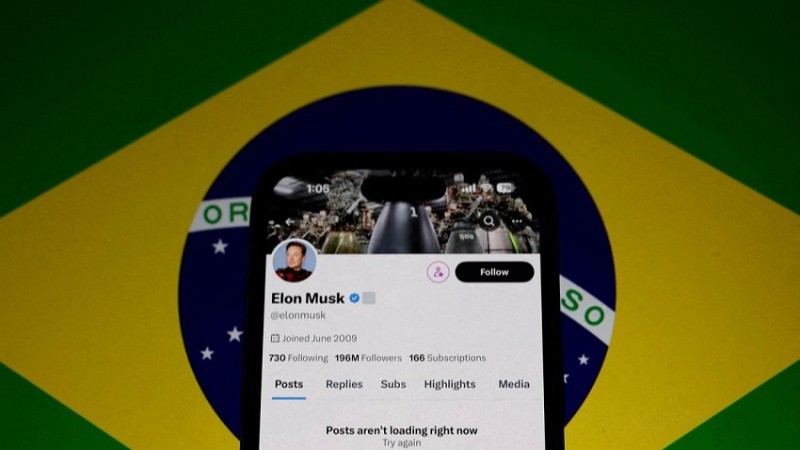
Brazil's recent ban on platform X, amid Elon Musk's criticism of the decision, has stirred a global discussion about how democracies should handle freedom of expression versus information integrity. This move serves as a warning for other nations grappling with similar issues as elections approach.
The Brazilian legal system holds extensive power to demand the removal of specific posts and accounts, yet this authority comes with significant challenges. The potential for a complete ban on the platform raises concerns about censorship and its impact on the global internet.
"Blocking an entire platform is considered a drastic measure under international standards of freedom of expression," said Veridiana Alimonti, an expert with the Electronic Frontier Foundation based in Brazil. "It's problematic when platforms host both legal and illegal speech," she added.
Unlike Brazil, European countries and the United States are unlikely to follow suit due to their limited legal authority and the political risks associated with challenging a high-profile figure like Musk. Musk has become increasingly aligned with right-wing figures and endorsed Republican candidate Donald Trump for the upcoming U.S. election.
The conflict with Brazilian Supreme Court Justice Alexandre de Moraes has intensified Musk’s ideological battle. The Supreme Court's investigation into whether disinformation on social media led to the storming of public buildings by Bolsonaro supporters on January 8, 2023, has drawn Musk’s ire.
In April, Moraes launched an inquiry into whether Musk, a known supporter of Bolsonaro, obstructed justice or allowed platform X to unlawfully influence public opinion. Both Musk and X have denied these accusations.
Bruna Santos, head of the Wilson Center’s Brazil Institute, suggested there should be a debate on whether the Brazilian high court is overstepping its authority. However, she noted that questioning Moraes can be perceived as defending Musk, complicating the conversation.
Other governments have faced challenges with X but with varying outcomes. For instance, X complied with content removal requests in India and agreed to halt processing personal information of European users for AI training. In contrast, Brazilian authorities have been more assertive.
EU officials have warned X against misleading users into engaging with harmful content, with potential fines of up to 6% of the company's revenue. Christel Schaldemose, a Danish lawmaker, expressed concerns that high fines might not deter Musk and suggested strengthening regulations if necessary. However, she believes Brazil's approach may be too extreme.
In the U.S., regulators have the option to ban harmful online content under the Communications Decency Act of 1996, but political disagreements on updating this law have stalled progress. The Biden administration recently signaled a more hands-off approach to disinformation, allowing platforms to decide on blocking users or removing content.
Santos highlighted that Brazil’s Constitution does not view freedom of speech as an absolute right, creating a more robust judiciary capable of defending democracy.
The U.S. has also considered a ban on TikTok due to national security concerns, similar to Brazil's actions against X, potentially involving prohibiting local internet service providers from hosting the site.
In Brazil, Musk’s right-wing allies are rallying in support. Bolsonaro's supporters plan a march on Independence Day to call for Moraes’ impeachment. The upcoming local elections will test Bolsonaro’s influence since his presidential defeat in 2022.
President Luiz Inacio Lula da Silva’s administration has pursued legislation to hold tech companies accountable for fake news, but political polarization has stalled these efforts. Currently, the standoff continues with Musk resisting the judge’s orders, affecting his other ventures. Musk’s Starlink service had its accounts frozen by Moraes, and SpaceX has advised against travel to Brazil.
Mariana Valente, a law professor and director of Brazil’s InternetLab, suggested that if Musk complies, X might return to Brazil. However, if Musk remains defiant, X could remain blocked for an extended period.